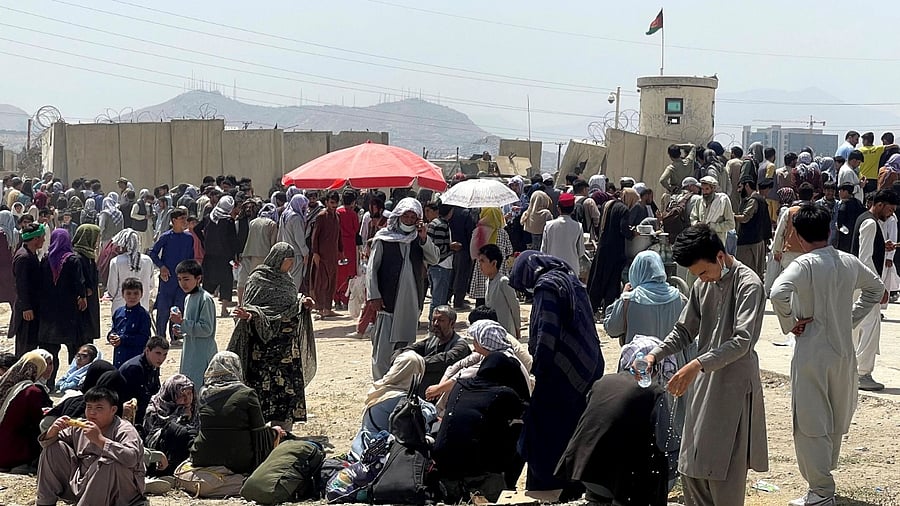
A sense of helplessness, coupled with political and social uncertainty in Afghanistan, has hurled the 339-strong Afghan community in Karnataka into turmoil.
According to government sources, 192 are on student visas and a total of 202 visa holders are in Bengaluru.
Sayed Anwar Hussaini, president of the Mangaluru chapter of the Afghanistan Students’ Association, said that the Taliban takeover has crushed the spirits of expatriate Afghans.
“Some of us are facing exams. Nobody is able to study. Most of the community does not know what to do. The hopelessness that we feel is absolute - not least of all for the fact that we cannot save our families by getting them out,” he said.
“In about six months, we will have a better idea of how the Taliban behaves. I hope they have changed, but my heart tells me they will again impose their brutal Pakistani Islam culture on us,” he said.
Meanwhile, scores of Afghan students registered in Karnataka colleges, but who had returned to their country due to the Covid-19 second wave are desperately trying to escape the Taliban.
Speaking to DH, Santosh M S, joint registrar, Jain deemed-to-be university, said, “there are around 80 students from Afghanistan on our campus. As many as 45 have gone back to their country due to the pandemic. So far, we have issued bonafide certificates to 18 students.”
The students have told university officials that they planned to travel to Iran as refugees and then try to fly back to India. A majority of the students are under the scholarship of the Indian Council for Cultural Relations.
Those students still on campus said that worry for their families is coupled with the worry about their own status in India.
Abdulrahaman Muhammadi, 5th Semester MCA student from Jain deemed-to-be university, is worried as his student visa is set to expire in April. His sister’s visa expires in November.
“The only hope is a long-term visa extension from the Indian government,” he said.
Fear of Taliban
His sister Nooria, who is pursuing a masters in psychology, said that she was worried about returning to Afghanistan.
“I am in a conflicted state of mind. What the media is showing and what I am hearing from my family and friends is completely different. They are saying there is no harm for women. But I am worried because their stance may change after a month,” she said.
This was echoed by Shukria (27), an ethnic Uzbek from Kabul living in Chandigarh.
A graduate of Punjab University with a Bachelors in Business Administration, she said she got stranded in India after returning from Afghanistan to collect her graduation certificate in March.
“Now, I am only able to reach my family once in a while. The power in Kabul is gone for days. They are asking me not to come back, but the Indian government is also not extending my visa. It is a terrible time. The Centre must offer support till the situation in Afghanistan stabilizes,” she said.
Shukria said she did not believe the Taliban’s promises of moderation: “Our home is near the Kabul prison and one of the first things that the Taliban did was free the criminals from the prison. These men are terrorising the neighbourhood. The Taliban says they are in Kabul to enforce law and order. Why did they release these criminals then?”
